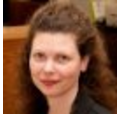For all of uncle Freud's faults -- such as his stultifying preoccupation with sex and violence -- he never intended for his theories to be used in this fashion, serving as the basis for justifying a never ending sequence of actions that caused him so much worry for mankind: war. Freud, who did not like American culture, expressed disgust when Bernays encouraged him to write articles for clients in the popular media, which Freud perceived as a cheapening of his work.
Bernays, on the other hand, was a manipulative, arrogant and self-aggrandizing man who essentially believed that humans were too stupid and too dangerous to be trusted with the truth or self-governance. He was an elitist who was right at home with the oligarchs and hawks of his day and their agenda of control, consumerism, militarism and ignorance. What's more, he was paid handsomely for his work, in both money and stature.
It should be noted, of course, that fear of the rabble was articulated centuries prior to Freud, Trotter and Bernays -- although its underlying psychological dynamics may not have been clearly understood. This included a segment of the founding fathers like Alexander Hamilton and John Jay whose ideas justified an effective rule by the elite.
Going back even further, David Hume made observations in the 17th century about the need to control the opinions of the masses to protect the rule of the few in light of the English political upheaval which saw demands for universal education, democratization of the law, and social protections. Noam Chomsky has delineated the line of political thought stretching from Hume to John Locke to today:
[blockquote] In the contemporary period, Hume's insight has been revived and elaborated, but with a crucial innovation: control of thought is more important for governments that are free and popular than for despotic and military states. The logic is straightforward. A despotic state can control its domestic enemy by force, but as the state loses this weapon, other devices are required to prevent the ignorant masses from interfering with public affairs, which are none of their business. These prominent features of modern political and intellectual culture merit a closer look. (emphasis in original) [/blockquote]
French writer and political analyst, Jean Bricmont, expounded on the dynamics of this strategy of propaganda control in the seemingly free and open societies of today in his 2007 book Humanitarian Imperialism: Using Human Rights to Sell War:
[blockquote] Today's secular priesthood is made up of opinion makers, media stars of all kinds, and a considerable number of academics and journalists. They largely monopolize public debate, channeling it in certain directions and setting the limits on what can be said, while giving the impression of a free exchange of ideas. One of the most common ideological reinforcement mechanisms is to focus debate on the means employed to achieve the supposedly altruistic ends claimed by those in power, instead of asking whether the proclaimed aims are the real ones, or whether those pursuing them have the right to do so. (p. 32) [/blockquote]
The Mass Media -- Who's Platform?
Next Page 1 | 2 | 3 | 4 | 5 | 6 | 7 | 8 | 9
(Note: You can view every article as one long page if you sign up as an Advocate Member, or higher).





